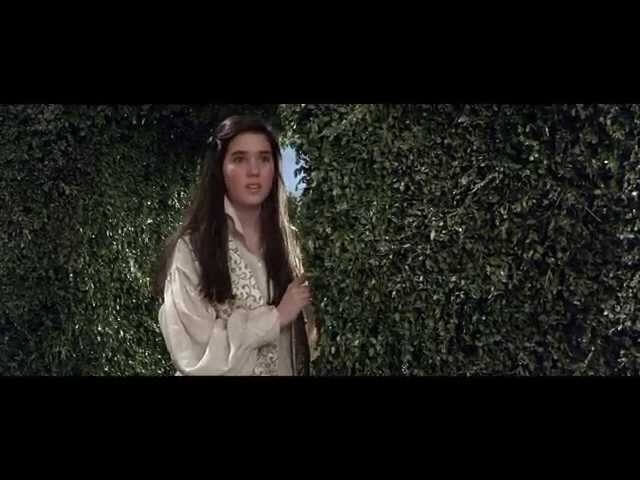Labyrinth’s soundtrack is an essential part of David Bowie’s legacy

A kidnapped baby. A Bog Of Eternal Stench. A Goblin King whose stretchy pants leave very little to the imagination. In 1986, director Jim Henson, producer George Lucas, and screenwriter Terry Jones combined these and other elements to make Labyrinth, a movie that depicts the horrors of being a teenager as a bedtime story gone terribly wrong, a magical journey filled with bizarre creatures and frustratingly deceptive pathways. In the film—a box-office and critical disappointment that’s since gained a massive cult following—the oddly intriguing Goblin King steals away with teenage Sarah’s baby brother, offering to return him only after Sarah navigates his maze. For the part of Jareth, the Goblin King, Henson recruited professional intriguing oddball David Bowie, who also provided a handful of the movie’s songs.
In a 1985 New York Times article, Henson explained his choice as the result of wanting to do a lighter movie after the decidedly bleak The Dark Crystal. “We wanted to do a story with small, delightful relationships,” Henson said. “The film captures the moment when an adolescent girl realizes she is responsible for her life. Dark Crystal had a symphony orchestra. Labyrinth will have the funkier sound of David Bowie’s music.”
In the film’s promotional notes, Bowie also referred to the story’s lightness as a reason for his involvement. “Jim gave me the script, which I found very amusing,” he said. “It’s by Terry Jones, of Monty Python, and it has that kind of slightly inane insanity running through it. When I read the script and saw that Jim wanted to put music to it, it just felt as though it could be a really nice, funny thing to do.”
Given Labyrinth’s abrupt tonal shifts—the film skitters on a dime from disorienting shadows to floppy, singing creatures called Fireys—it’s fitting that the soundtrack, which received its first-ever vinyl reissue on May 12, is itself an odd creature. Half of the album is taken up by Trevor Jones’ electric guitar-and-synth score, which hasn’t aged well. Like the movie, however, the album succeeds on its own weirdly endearing charms. That success is largely due to Bowie’s songs, which are too often overlooked in his catalog.
When David Bowie died, media attention was understandably focused on his best albums: Ziggy Stardust, the pop masterpiece Hunky Dory, the Brian Eno-Tony Visconti collaborations of the Berlin Trilogy. And while his songs for Labyrinth don’t match those dizzying heights, they deserve to be more than a footnote to Bowie’s legacy. (The film, let alone Bowie’s musical contribution, wasn’t even mentioned in his New York Times obituary.)
“Underground” bookends the film; the first words heard in Labyrinth are “It’s only forever, not long at all,” plaintively sung by David Bowie in his typically heartbreaking howl. That lyric nicely captures adolescence’s confusing mix of breakneck speed and endless boredom, of obligation and independence. The song’s beckoning to come “down in the underground” sounds like a weird, cool upperclassman helping you find your people in the dark comfort of drama club. Since the song comes minutes before we meet Sarah—a fairy-tale-obsessed 15-year-old who’s about to face adulthood in the intimidating form of Bowie’s Goblin King—its words are especially poignant.
 Keep scrolling for more great stories.
Keep scrolling for more great stories.
